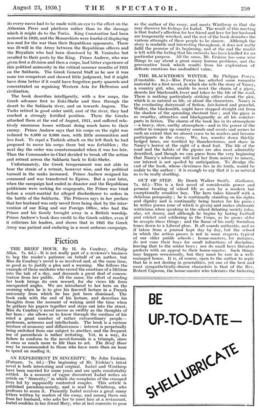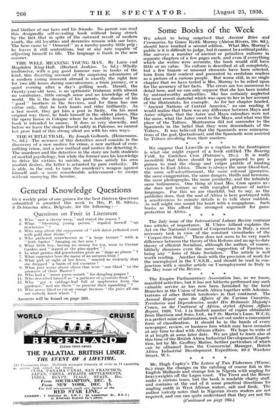OUT OF STEP. By Derek Walker Smith. (Gollanez. 7s. 6d.)—This
is a first novel of considerable power and promise treating of school life as seen by a modern but exceptionally sensitive boy. The hero takes himself with a delicious pomposity ; he is continually standing on his rights and dignity and is continually being beaten for his pains ; he writes poems (one of which is given) and makes elaborate witticisms when speaking in the school debating society (also, alas, set down), and although he begins by hating football and cricket and soldiering in the Corps, us he grows older he accepts these things ; and the flame of his early Socialism tones down to a Liberal glow. It all sounds authentic, and as if taken from a journal kept day by day, but the school in which the action passes is not in some respects typical of our older public schools : house-masters, for instance, do not cane their boys for small infractions of discipline, leaving that to the senior boys ; nor do small boys threaten prefects with an appeal to their house-master. Such things may happen occasionally, but they must be rare in a well- managed house. It is, of course, open to the author to reply that he is not dealing in generalities, yet one of the best and most sympathetically-drawn characters is that of the Rev. Robert Caperon, the house-master who tolerates the bickering and blather of our hero and his friends. No parent can read this designedly self-revealing book without being struck by the fact that in spite of the outward revolt of modern youth, the old loyalties and decencies remain with our boys. The hero came to " Ormond " as a namby-pamby little prig : he leaves it still sententious, but at any rate capable of adjusting himself to life. The language is frank in the new manner.

































 Previous page
Previous page